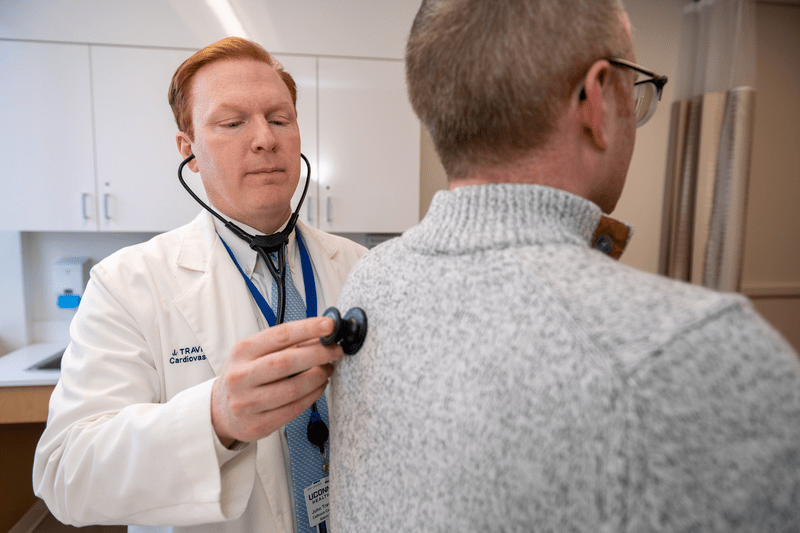Don’t ever underestimate the power of DNA on your beating heart, as it can be the root cause of heart failure.
Dr. Travis Hinson, a cardiologist at UConn School of Medicine is trying to fix that.
Hinson is spearheading research that uses genetic engineering to change the outcome for patients and their families whose heart disease is genetic.
That’s 5 to 10% of patients whose heart disease isn’t caused by a faulty valve or blockage and for which there is no effective treatment.
It’s also for their family members who may carry that genetic mutation in their DNA.
Hinson starts by creating beating avatars of a patient’s unique heart and experimenting in the lab with genetic therapies that involve cutting out the problem DNA and pasting in normal DNA.
The gene therapy that Hinson and his team have developed now works in the avatars and in mice.
They’re hoping within five years to begin the first-in-human clinical trials, he said. Simple genetic testing for a gene misspelling can be done through a blood test, Hinson said.
“Genetic medicine is the new preventative care,” he said.
Hinson said often symptoms of heart disease are trouble breathing, swelling in legs and fatigue.
The heart could be pumping not enough or too much.
There are some one size fits all treatments, “But they don’t work well,” he said.
“It’s kind of like we’re in the dark ages,” he said. “We treat people with the same medications.”
But genetics “plays a huge role” in heart disease, Hinson said.
“If the genetic code is wrong it can make the heart weak,” he said.
Having that information can dramatically impact patients and their family members who may have a mutation.
“It’s almost like genetics is prevention,” Hinson said. “Through DNA we can develop treatment for heart failure if there are no valves leaking or blockages.”
UConn School of Medicine dean Dr. Bruce T. Liang, who is also a cardiovascular physician, said Hinson’s innovative NIH-funded cardiovascular genetics research and personalized Cardiovascular Genetics Program care are a shining example of what they do best at UConn School of Medicine and UConn Health.
“The discoveries and translational research happening at UConn School of Medicine are truly amazing,” Liang said. “Thanks to Dr. Hinson’s outstanding skill and tireless passion, he is truly enhancing the lives of more and more patients struggling with debilitating heart failure and cardiomyopathies while keeping our Calhoun Cardiology Center on the forefront of cardiovascular research.”
Mark Adams, professor and interim scientific director at UConn’s Jackson Laboratory or JAX, said Hinson’s work is “revolutionizing how we view heart disease by identifying the fundamental genetic mutations and developing approaches to change them before they cause harm.”
He said Hinson’s research in precision medicine is “paving the way for a future where treatments are tailored to correct the underlying genetic defects, resulting in enduring, transforming care for heart failure.”
Heart failure affects over 7 million Americans and remains a leading cause of death among adults, university officials said. Heart disease also is the leading cause of death in Connecticut, according to the U.S, Centers for Disease Control and Prevention.
“Unfortunately, heart failure treatment in the U.S. often follows a one-size-fits-all approach, which can be incomplete or ineffective,” Hinson said. “This therapy addresses a critical unmet need in cardiovascular medicine.”
Hinson, UConn School of Medicine’s Pat and Jim Calhoun Endowed Professor, leads the Cardiovascular Genetics Program at UConn Health’s Calhoun Cardiology Center.
Hinson said, “It’s my life’s dream” to see a successful treatment that he had a hand in developing.

